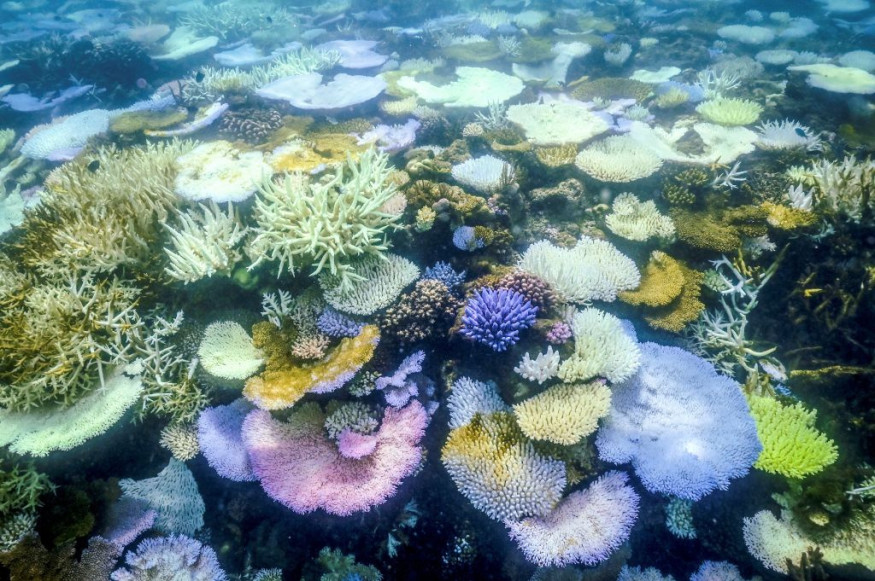
A remarkable discovery has surfaced from the depths of the Solomon Islands' waters-a coral so immense it can be seen from space.
Found by the National Geographic Pristine Seas team, this colossal coral, known as Pavona clavus, is now recognized as the largest in the world.
Diver Discovers World's Largest Coral, Mistaken for Shipwreck, Beneath Solomon Islands
The find occurred during an expedition when researchers initially mistook the structure for a shipwreck. Upon further investigation by a diver, it turned out to be a thriving coral formation, estimated to be 300 years old.
This extraordinary organism spans 34 meters in width, 32 meters in length, and over 5 meters in height, dwarfing the previous record-holder, "Big Momma," located in American Samoa, ABC News reported.
More than just a massive structure, the coral is a bustling ecosystem, home to countless marine species like fish, crabs, and shrimps. Its layers hold an invaluable historical record of ocean conditions spanning centuries.
Marine ecologist Enric Sala described the discovery as monumental, comparing it to finding the world's tallest tree.
This coral is a single, living organism made up of billions of tiny polyps working together to build and maintain this vibrant underwater habitat. Unlike traditional coral reefs that comprise multiple colonies, this coral stands alone as a testament to nature's wonders.
Solomon Islands Coral Diversity at Risk as Climate Change Threatens Marine Ecosystems
The Solomon Islands, located in the biodiversity-rich Coral Triangle, host the second-highest coral diversity on Earth.
This region plays a vital role in supporting marine life and protecting coastal communities. According to Ronnie Posala, a fisheries officer in the Solomon Islands, corals serve as natural barriers, defending shores from powerful storms and waves.
However, these ecosystems are under threat. Rising ocean temperatures, pollution, and unsustainable fishing practices have caused widespread coral bleaching and degradation.
Scientists warn that without significant action to curb climate change, coral reefs worldwide could disappear by the end of the century, according to Earth.com.
Despite the challenges, this discovery provides optimism. Coral scientist Eric Brown noted that while nearby shallow reefs have suffered due to warming seas, this massive coral thriving in deeper waters offers hope.
Its resilience suggests that deeper-water corals might survive where shallower ones fail, offering potential strategies for preserving vulnerable reef systems.
The newly uncovered giant coral highlights both the fragility and resilience of marine ecosystems.
As threats to coral reefs grow, this discovery serves as a reminder of the urgent need to protect these vital habitats. For the Solomon Islands and the world, it reinforces the importance of safeguarding our oceans for future generations.
© 2025 NatureWorldNews.com All rights reserved. Do not reproduce without permission.





